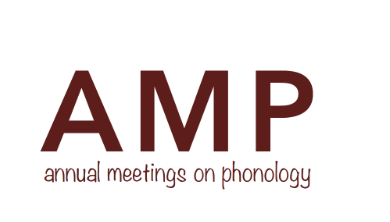Is there scope for scope in morphophonological rule induction?
Abstract
Learning biases based on simplicity, naturalness or conservativeness are well-studied in both theoretical and experimental work (i.a., Pycha et al. 2003; White, 2013; Durvasula & Liter, 2020; see also Berwick, 1985; Tenenbaum 1999). This paper probes an under-explored (potential) bias – a scope expansion bias favoring generalization of rules to as many segments as possible in their structural environment, independently of the complexity of the resulting rule. Scope expansion has been argued to be active in diachronic trends (Vaux, 2008; Nie et al., 2019), and to maximize model fit in computational modelling (Sayeed & Vaux, 2023). We present a first study investigating the potential role of scope expansion in Artificial Language Learning with adult English participants: we manipulate the scope of the rule participants learn in the experiment via three conditions, and evaluate our results’ implications for proposed learning biases in morphophonological acquisition. Our findings provide evidence against conservative learners and in favor of simplicity-driven learners: high overgeneralization rates are observed, irrespective of condition. While we find no unambiguous effect of scope, we argue that this is predicted by Yang’s (2002, et seq.) Tolerance Principle: learners systematically induced elsewhere rules and overgeneralized the form with the highest type frequency. We discuss the ways in which learning strategy (explicit/implicit) sheds light on the results obtained.
How to Cite:
Bosch, N. & Vaux, B., (2025) “Is there scope for scope in morphophonological rule induction?”, Proceedings of the Annual Meetings on Phonology 1(1). doi: https://doi.org/10.7275/amphonology.3037
Downloads:
Download PDF
325 Views
303 Downloads
